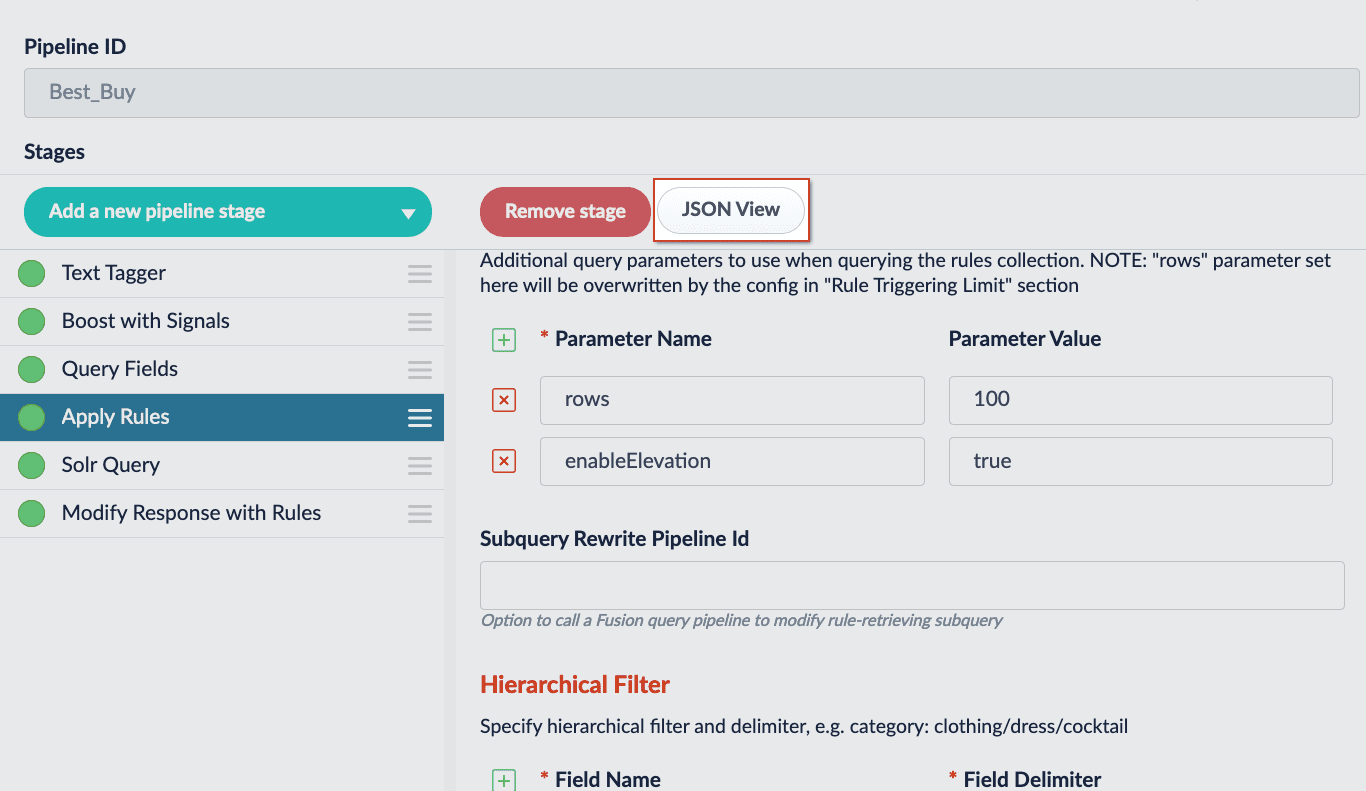Query Pipeline Stages
A query pipeline is made up of a series of query stages that process incoming search queries.
A pipeline stage definition associates a unique ID with a set of properties. These definitions are registered with the Fusion API service and stored in ZooKeeper for re-use across pipelines and search applications.
Fusion includes a number of specialized query stages as well as a JavaScript stage that allows advanced processing via a JavaScript program.
Configuring query pipeline stages
-
In the Fusion UI, the Query Workbench provides an environment for configuring the stages in a query pipeline.
-
The Query Stages API is used to create, list, update, or delete query stages using JSON. See also the Query Pipelines API.
Pipeline stage JSON editor
The pipeline stage JSON editor gives the ability to create and copy pipeline stages by pasting JSON objects in the Fusion UI. Only JSON is supported, and JSON validation is included to prevent the user from saving an invalid object.
Navigate to your pipelines, select a pipeline stage, and click the JSON View button to open the editor:

Existing stages are considered READ-ONLY. They will have only a copy button which can be used to create stages. New stages will have the option to copy or paste valid JSON. Changes are applied to the stage with the Apply button.
| Users will still need to Save the stage for the changes made in the editor to be saved. |
The editor has several elements worth noting:
| Elements | Description |
|---|---|
|
Copies the JSON to the clipboard. |
|
Pastes the clipboard into the editor. Only valid JSON is accepted. |
|
Expands the editor to a fullscreen view. |
|
Condenses the editor to a compact view. |
|
Applies the JSON in the editor and updates the stage. The stage must be saved to preserve the changes. |
|
Resets changes made since the last time changes were applied. |
For instructions, see Use the Pipeline Stage JSON Editor.
Asynchronous query pipeline processing
Query pipeline processing performance can be improved by enabling asynchronous processing for certain stages that make requests to secondary collections, external databases, and so on. The following stages support asynchronous processing:
This feature uses the fork-and-join model, where any of the stages above can create a fork on the pipeline. The parallel processes are joined again using the Merge Async Results stage at a later point in the pipeline.
Conditional query processing
Query Pipeline stages are used to modify Request objects
and Response objects. Each stage can include a conditional JavaScript expression (the condition property in its configuration) that can access these objects.
For example, this condition first checks that the property fusion-user-name is specified in the Request object, then checks for a particular value:
request.hasParam("fusion-user-name") && request.getFirstParam("fusion-user-name").equals("SuperUser");